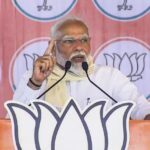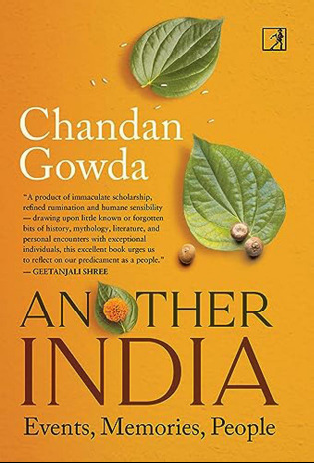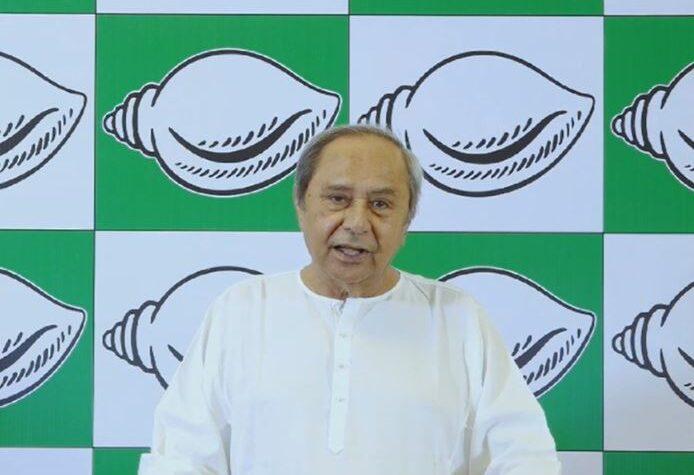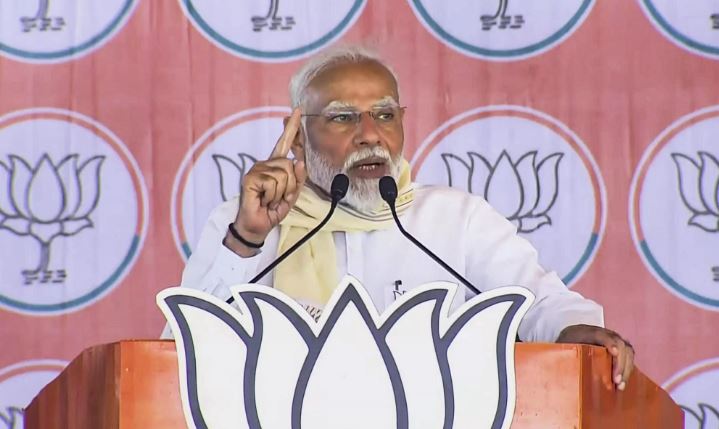When a book embarkson the multifacetedtapestry of India’srich history and diverse traditions,it is sure to be a fascinating work.Another India: Events, Memories,People by Chandan Gowda doesexactly that. Throughout the
book, the author reveals the layersof the past, shedding light on thecomplicated world of religiouscosmologies and Hinduism’snumerous forms. It introduces usto a variety of obscure andcelebrated individuals, such as
Bhimavva and Gandhi, through avariety of stories.Chandan Gowda isRamakrishna Hegde ChairProfessor at the Institute forSocial and Economic Change inBengaluru. Theatres ofDemocracy: Selected Essays ofShiv Visvanathan , A Life in theWorld, a book of autobiographicalinterviews with URAnanthamurthy, as well as TheWay I See It: A Gauri LankeshReader, which has been translatedinto Hindi, Kannada, Malayalam,Telugu and Tamil. The translation
of UR Ananthamurthy’s novellaBara was shortlisted for the Crossword Book Award for Translation.The book sheds light on theirimpact on the Cultural Revolutionin the country. By weaving thesenarratives together, the book
presents a picture of the culturaluniverse of India. It emphasizesthe significance of creative dissentand the enduring values that haveshaped this vibrant and everevolvingsociety.Gowda brings out interestingfacts. RSir M Visversvaraya
carried two pens throughout hiscareer, one belonging to thegovernment and the other tohimself. The former pen was
always used for office work andthe latter for personal use. Whenpossessed by a devotee, a deityknown asDoddaswamy wouldstart whistling with his fingers inhis mouth. His devotees mustaddress him only through
whistles. The deity Gajalakshmi,also from Gulbarga district,expects her devotees to bare alltheir teeth in front of her.
Another India is a free-ranging,delightful, and erudite book thatexplores the past from variousperspectives, reveals the subtlefacets of religious experiences,diversifies our imagination oftradition, and suggests ways ofreengaging with it. From Bhimavvaand Mastani Maa to Gandhi andTagore, the book shares excitingstories about lesser known andwell-known figures in our country.This book gives you theopportunity to discover the manyevents, thoughts, and people whohave generally been overlooked inour quest for a single,mainstreamnarratives in our lives. There arerich visions and values of livingtogether that continue to guide ourconstant striving to make ourcountry, our society and ourdemocracy a better, more justplace to live, and where creativedissent has shaped the ethos, inbecoming a better, more justcommunity.The book is a metaphor forcultural diversity. An impressivetapestry illustrating the crisscrossingof intellectual currentsbetween people, memories andevents – between regions andnations, between the particularand universal.Take for example this work byKuvempu. Says the book:’Written in his mid-20s,Kuvempu’s first play, Jalagara(The Scavenger, 1928), continuesto hold a special significance. Anearly enactment of hisphilosophical ideal ofvishvamanava, the play alsoreveals the poet’s creativeof admiration for the splendourof the sun quickly reveals amature, sophisticated mind. Afarmer passerby asks him toaccompany him to the fair beingheld near Shiva’s shrine. Thescavenger declines to join him: thepriests, he replies, wouldn’t lethim come anywhere near theshrine.The story continues:”Enchanted by the scavenger’ssongs from afar, two learnedBrahmin priests withhold theirapplause however afterdiscovering that the voicebelonged to a low caste man.Poets, scholars, sculptors, singers
and yogis, they smugly contend,can never be born among theShudras. In the evening, on hisway back from the shrine, thefarmer, who was ecstatic aboutthe ritual pomp, has onlycoconuts, flowers, kumkuma andcamphor to show from his visit.”Haven’t you brought backShiva?” The scavenger isunimpressed. Later, when thescavenger beseeches Shiva toreveal himself, the Lord appearsin the guise of a scavenger. “Youlook human but seem to besuperhuman. Your eyes shinebrighter than the stars. Who areyou?” Noticing the scavenger’sbewilderment, Shiva says, “Don’t
be afraid, brother. I’m yourrelative.” He continues, “I’m ofyour caste (jati). I’m a scavenger.A scavenger of the world. Iswallow the sins of the world.Beauty flourishes in the world dueto my scavenging work. Theradiant moon, the roaring oceans,the clear rivers, the majesticforests, all of them are in my debt.They call me Rudra at times and
Shiva at other times, but they arehesitant and afraid to call me ajalagara.”An uncommon and wonderful
introduction to the diversity ofIndian cultural and intellectualexperiences, this collection ofessays is informed by a deepimmersion in South Indian literarylife and a vigorous humanism. Thebook is a flawless blend of thetopical and the classical, and anexploration of women sufis,barbers, and akhadas. In addition,it provides wonderful anecdotes
and insights into legends likeAmbedkar, Kuvempu and Lohia.Embracing diversity at itsfinest, the anthology celebratesvaried slice of Indian culture.











More Stories
Modi to contest from Varanasi
Russian Aircraft carrying 74 Ukrainian Soldiers Crashes
Irregularity at lunch: Tatile parent